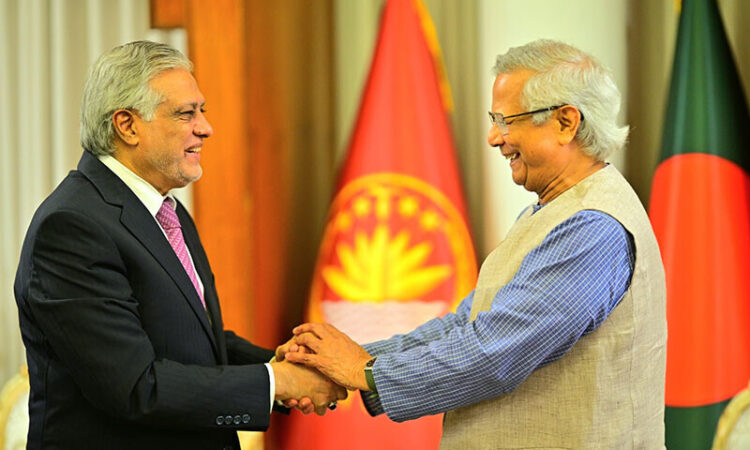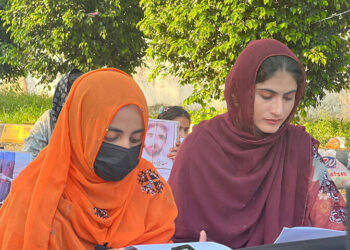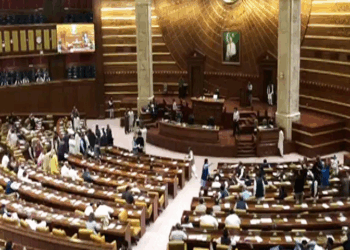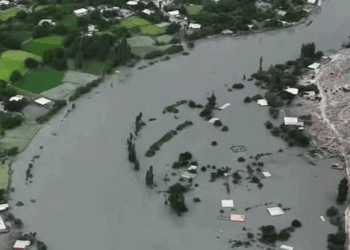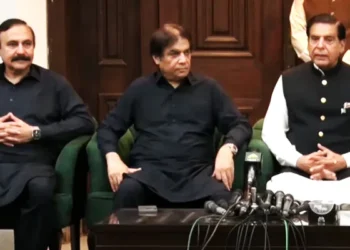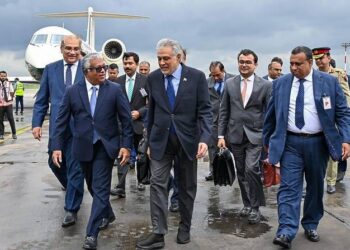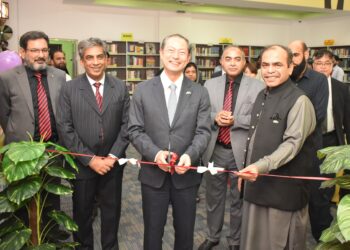DHAKA; Deputy Prime Minister and Foreign Minister Ishaq Dar held a meeting with Bangladesh’s Chief Adviser, Professor Muhammad Yunus, on Sunday during his landmark visit to Dhaka — the first by a Pakistani foreign minister in over a decade.
The visit comes at a time when relations between Islamabad and Dhaka have begun to improve following the ouster of Sheikh Hasina’s government in a popular uprising last August. Since then, bilateral ties, particularly in trade and economic cooperation, have seen noticeable progress.
In a post on X, the Foreign Office described Dar’s two-day trip as a “significant milestone” in Pakistan-Bangladesh relations. It said Dar briefed Yunus on the outcomes of his engagements in Dhaka and held in-depth discussions on regional developments and future prospects of cooperation.
According to the FO, the talks focused on reviving historic connections between the two nations, strengthening youth exchanges, boosting connectivity, and expanding trade and economic collaboration.
Earlier, Pakistan and Bangladesh signed six agreements on Sunday covering diverse fields of cooperation, as Deputy Prime Minister and Foreign Minister Ishaq Dar began a landmark two-day visit to Dhaka, the first by a Pakistani foreign minister in 13 years.
The visit is being seen as a major step in normalising ties between the two South Asian neighbours, which have shown signs of improvement since the fall of Sheikh Hasina’s government in August last year.
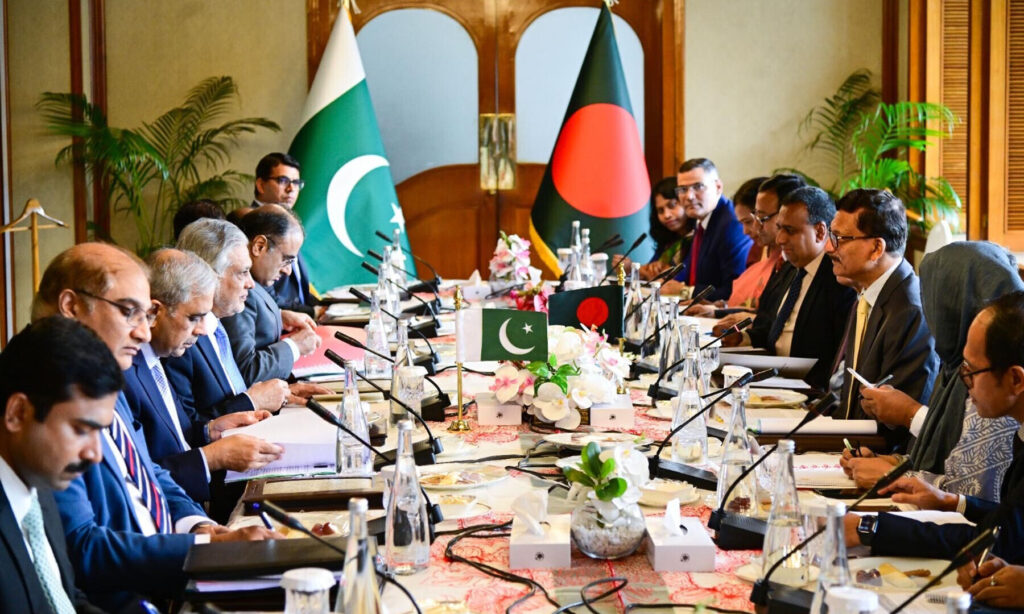
The Foreign Office described Dar’s trip as a “significant milestone” in bilateral relations, pointing out that political dialogue and trade ties have steadily gained momentum over the past year.
Following talks between Dar and Bangladesh’s Foreign Adviser Touhid Hossain at the Pan Pacific Sonargaon Hotel, both sides witnessed the signing of six agreements and memorandums of understanding (MoUs).
These included an agreement to abolish visas for diplomatic and official passport holders and an MoU to establish a Joint Working Group on trade. The Foreign Office (FO) highlighted that visa-free travel for officials had already been agreed in principle during Interior Minister Mohsin Naqvi’s visit to Dhaka last month.
Other agreements included an MoU between the two countries’ foreign service academies, a media cooperation pact between the Associated Press of Pakistan and the Bangladesh Sangbad Sangstha, an MoU between the Institute of Strategic Studies Islamabad and the Bangladesh Institute of International and Strategic Studies, and a cultural exchange programme. The FO said these arrangements would “institutionalise and strengthen cooperation in trade, economics, academic and media exchanges, and cultural collaboration.”
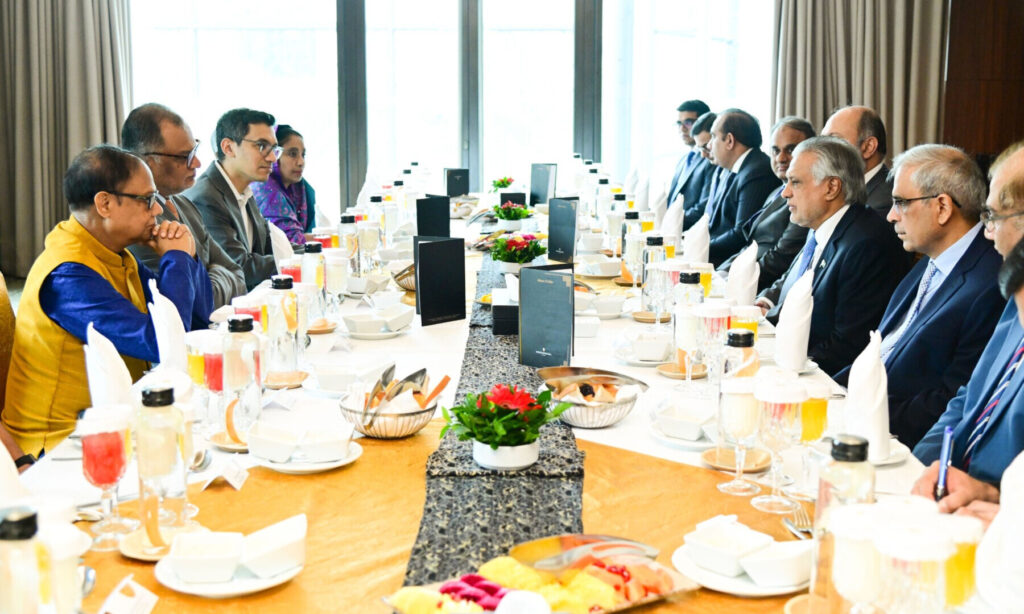
During their formal discussions, Dar and Hossain reviewed the “entire spectrum of bilateral relations” and pledged to deepen engagement. The FO noted the talks were conducted in a “constructive atmosphere, reflecting goodwill and cordiality.”
Issues covered included economic cooperation, cultural and academic exchanges, humanitarian matters, and greater people-to-people contact. Regional developments including the revival of the South Asian Association for Regional Cooperation (Saarc), as well as the Palestinian and Rohingya crises were also discussed. Hossain later hosted a luncheon in Dar’s honour.
Dar’s itinerary also includes a meeting with Bangladesh’s Chief Adviser, Nobel laureate Professor Muhammad Yunus, and a courtesy call on opposition leader and former prime minister Khaleda Zia.
Separately, Pakistan launched the Pakistan-Bangladesh Knowledge Corridor, a project offering 500 scholarships for Bangladeshi students over the next five years, with a quarter allocated to medical studies. In addition, 100 Bangladeshi civil servants will receive professional training in Pakistan. The FO said scholarships under the Pakistan Technical Assistance Programme would also be raised from five to 25 annually.

Dar held several political and social meetings during his visit. He met Jamaat-e-Islami emir Dr. Shafiqur Rahman, conveying Prime Minister Shehbaz Sharif’s best wishes for his recovery following cardiac surgery, and praised his contributions in politics, education, and welfare. Earlier, Dar also engaged with leaders of Bangladesh’s National Citizens Party (NCP), Jamaat-e-Islami, and the Bangladesh Nationalist Party (BNP).
On the economic front, Dar and Commerce Minister Jam Kamal Khan joined a breakfast meeting with Commerce Adviser Sheikh Bashiruddin and senior finance and trade officials. Discussions centred on boosting trade, enhancing connectivity, and promoting investment. Among the participants were senior Bangladeshi officials including the central bank governor, the head of the investment development authority, and key secretaries from the ministries of commerce, textiles, and tourism.
A reception hosted by Pakistan’s High Commissioner to Bangladesh, Imran Haider, provided Dar an opportunity to interact with academics, artists, journalists, retired generals, and sports figures. Addressing the gathering, Dar said Pakistan’s ties with Bangladesh were rooted in “centuries-old traditions, Islamic heritage, and shared social norms.” He expressed Islamabad’s desire for a “forward-looking partnership” built on cooperation and mutual respect, wishing the Bangladeshi people peace and prosperity.
According to Bangladeshi media, the two sides are planning to revive the long-dormant Joint Economic Commission (JEC), which last met two decades ago. A session is expected later this year, possibly in September or October, with Pakistan’s Finance Minister Muhammad Aurangzeb likely to travel to Dhaka for the talks.
The visit, marked by high-level engagements, multiple agreements, and forward-looking initiatives, underscores a new phase in Pakistan-Bangladesh relations — one driven by pragmatism, shared interests, and a mutual desire to put the past behind.








